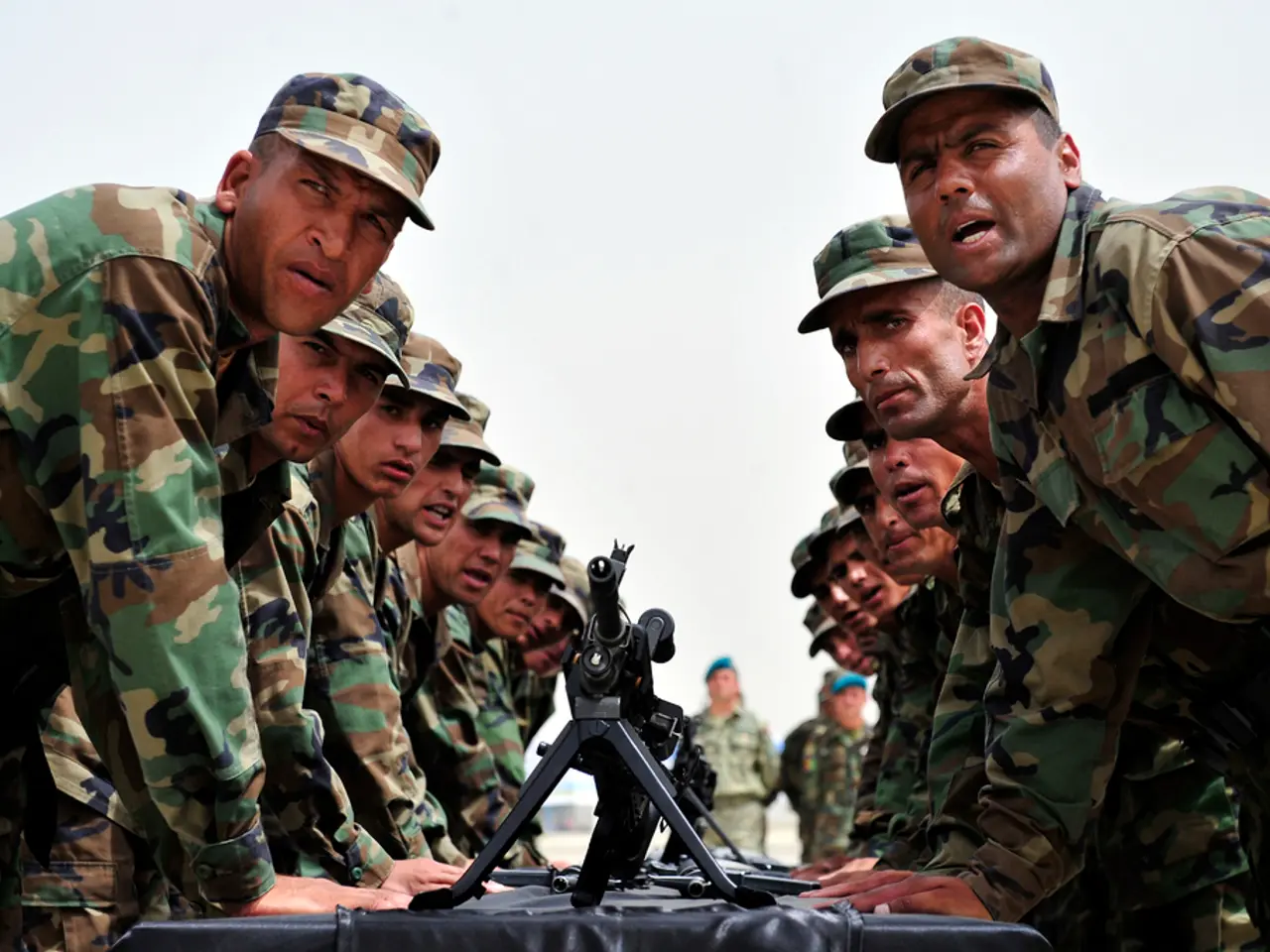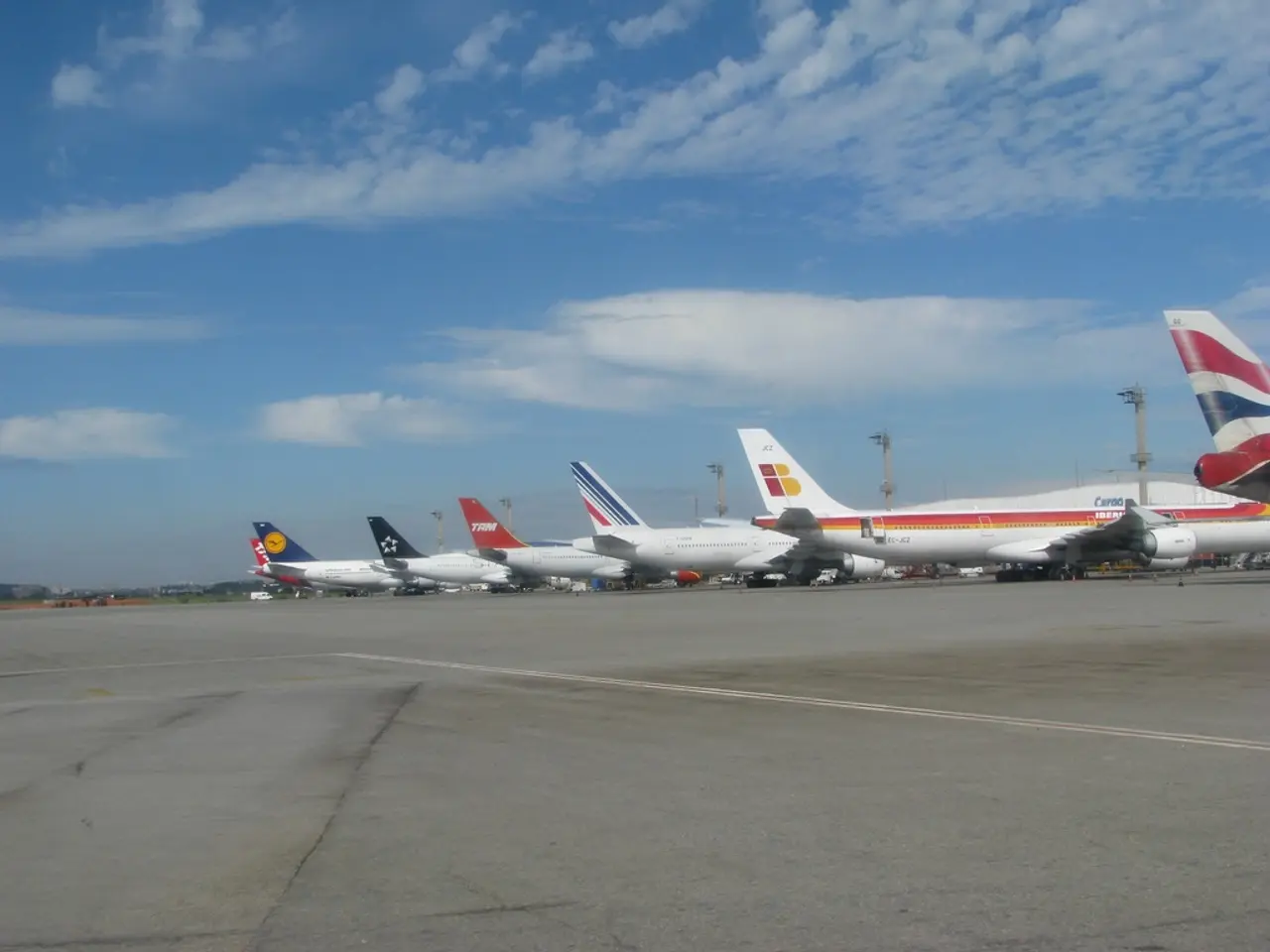Israeli political figure advocates for the targeted killing of Syrian leader al-Sharaa amid escalating conflicts in Sweida
In a dramatic turn of events, the transitional administration led by Syrian President Ahmad al-Sharaa is facing growing challenges, following a public call for the assassination of al-Sharaa by Israeli Diaspora Affairs Minister Amichai Chikli. This call, coupled with escalating violence in southern Syria, has significant implications for Syria's internal stability, regional relations, and the legitimacy of the transitional government.
The volatile security situation in Syria has been further exacerbated by the assassination call. Violent clashes between various groups, such as Druze and Bedouin tribes in Sweida province, have resulted in casualties and the deployment of military reinforcements to restore order. These external threats undermine efforts by al-Sharaa's government to fill the power vacuum, maintain civil peace, and rebuild state institutions.
The assassination call also complicates efforts by al-Sharaa's administration to assert true Syrian sovereignty and internal unity in the face of foreign influence. The call for al-Sharaa's elimination, coupled with Israeli military airstrikes against Syrian convoys, have heightened tensions and risk escalation in southern Syria. Israel's vow not to tolerate harm to the Druze community there reflects its continued security concerns driving these actions.
Internationally, al-Sharaa’s government, though transitional and relatively new, has received recognition and is negotiating with key regional actors like Turkey and Russia regarding military presence and reconstruction support. The assassination call risks isolating Syria further, complicating these crucial diplomatic engagements.
In response to these challenges, the Syrian government and its allies may formally condemn the assassination call as an act of aggression, asserting al-Sharaa’s legitimate leadership and emphasizing sovereignty under international law. Accelerating efforts to restore civil peace and addressing sectarian grievances transparently could reinforce internal legitimacy and resilience against external threats.
Emphasizing ongoing negotiations with Russia, Turkey, and international bodies to secure political, military, and economic support can help bolster the transitional government’s position. Pursuing dialogue with neighboring states and regional powers to mitigate the risk of escalation and promote stability would be strategic in the current volatile environment.
In summary, the assassination call on President Ahmad al-Sharaa intensifies the already fragile situation in Syria, challenging the transitional government's efforts toward stability and reconstruction, while escalating regional tensions—most notably with Israel. A measured but firm response emphasizing legitimacy, unity, and diplomatic engagement is crucial to navigate these complex challenges.
- The recent public call for Syrian President Ahmad al-Sharaa's assassination by Israeli Diaspora Affairs Minister Amichai Chikli may lead to increased tension with Turkey, as they engage in negotiations regarding military presence and reconstruction support.
- The volatile political climate in Turkiye, following the encounter with this assassination call on al-Sharaa, could impact its stance towards the ongoing war-and-conflicts in Syria, potentially altering its relations with the Syrian government or Russia.
- The Lira's exchange rate might be affected if the crisis in Syria further deteriorates, given Syria's economic interdependencies with its neighbors, including Turkiye, exacerbated by the growing unrest.
- In light of the escalating calls for violence and conflicts in Syria, the Turkish government, as a key regional player, may agree to intensify its effort in brokering peace talks with Syria's neighboring countries, including Russia, aiming to reduce tensions in the region and promote stability.







